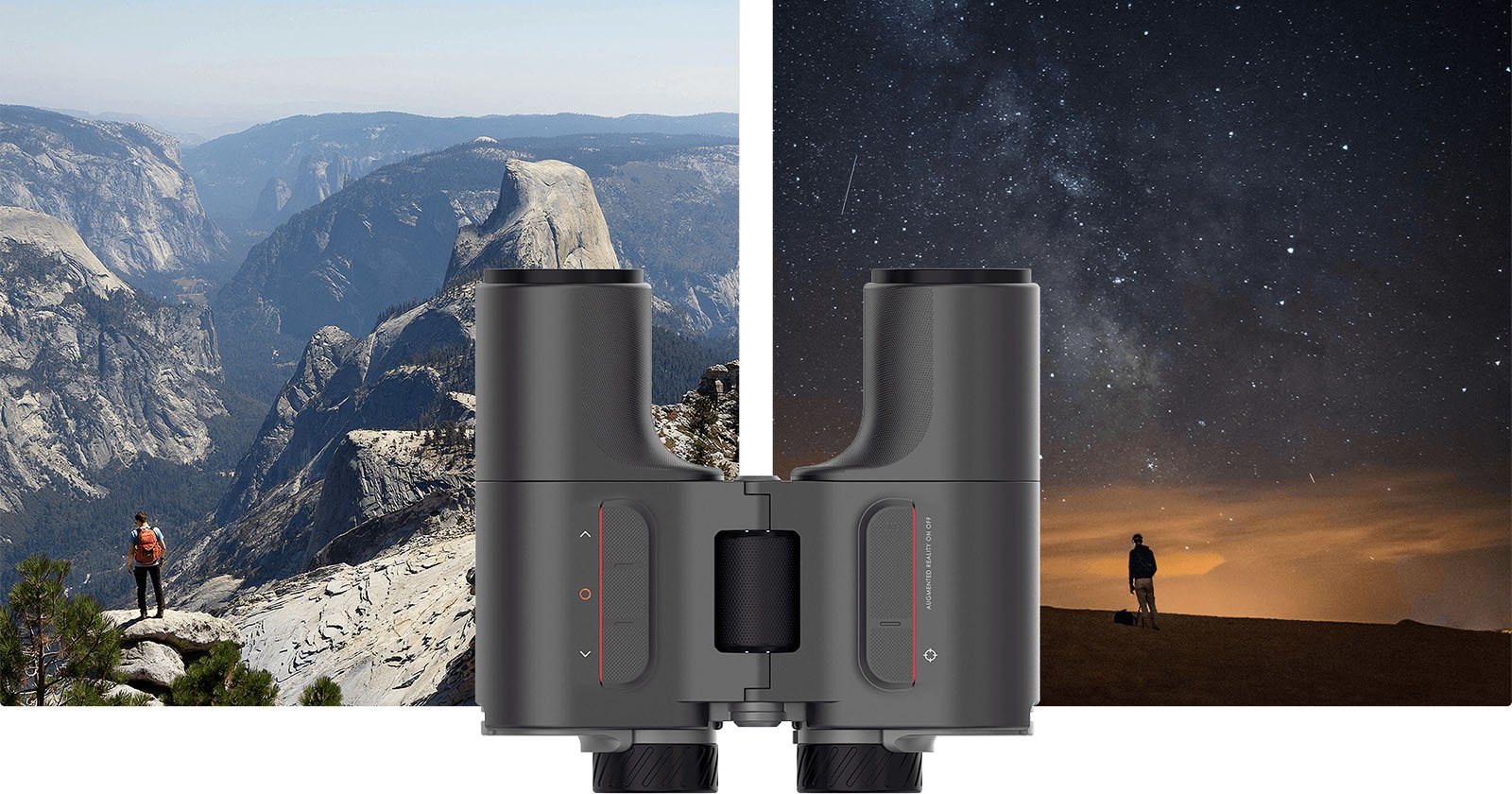
[ad_1]
![]()
Unistellar, best known for its smart telescopes, has announced that its Envision smart binoculars will land on Kickstarter next week.
Built in collaboration with Nikon, which announced an investment in Unistellar last year, the Envision smart binoculars aim to “redefine the way enthusiasts explore both the celestial heavens and the terrestrial landscape.”
Envision combines a Nikon-engineered optical design (x10 magnification and 50mm diameter) with augmented reality (AR) features. This enables the Envision binoculars to overlay contextual information directly into the user’s view, including info to help users navigate the night sky or identify terrestrial objects.
![]()
For example, when looking at the night sky, Envision can provide data from comprehensive night sky databases, like information on a planet, star, or constellation. Unistellar says the binoculars can recognize approximately 1,000 astronomical targets of interest, plus 200,000 stars.
When looking at landmarks during the day, the binoculars can highlight landmarks, water sources, trails, and other points of interest. The company says that more than a million mountains, hills, and peaks are in the database, plus hundreds of thousands of trails, shelters, water springs, caves, and more.
![]()
These features are partly driven by a connected smartphone with a dedicated Unistellar Envision app. Through the app, users can also start a Guided Navigation mode through the binoculars, helping them track a specific object they want to observe.
A shareable target-lock mode can also help people share an experience with friends. When one person finds an interesting landmark or target, they can lock onto it and pass the binoculars to someone else. The binoculars will then guide the new user to the exact location.
![]()
Only some Envision users will want the whole AR experience every time they look through the binoculars, so a classic optical experience is also available. This entirely disables the AR overlay, providing a traditional binocular experience.
Unsurprisingly, the AR features require power, and Unistellar says that it will work for about 1,000 binocular engagements per charge.
![]()
“We’re thrilled to unveil Envision smart binoculars, a testament to our commitment to innovation in exploration,” says Laurent Marfisi, co-founder and CEO of Unistellar. “Excitement continues to grow within the global community of explorers and technology enthusiasts alike. From amateur astronomers to outdoor adventurers, Envision will empower these users to discover and engage with their surroundings in ways never thought possible.”
The Unistellar Envision Smart Binoculars will launch first on Kickstarter starting June 25. The first 1,000 backers can purchase the binoculars for $599, down from the eventual retail price of $1,199.
Disclaimer: Make sure you do your own research into any crowdfunding project you’re considering backing. While we aim to only share legitimate and trustworthy campaigns, there’s always a real chance that you can lose your money when backing any crowdfunded project.
Image credits: Unistellar
[ad_2]